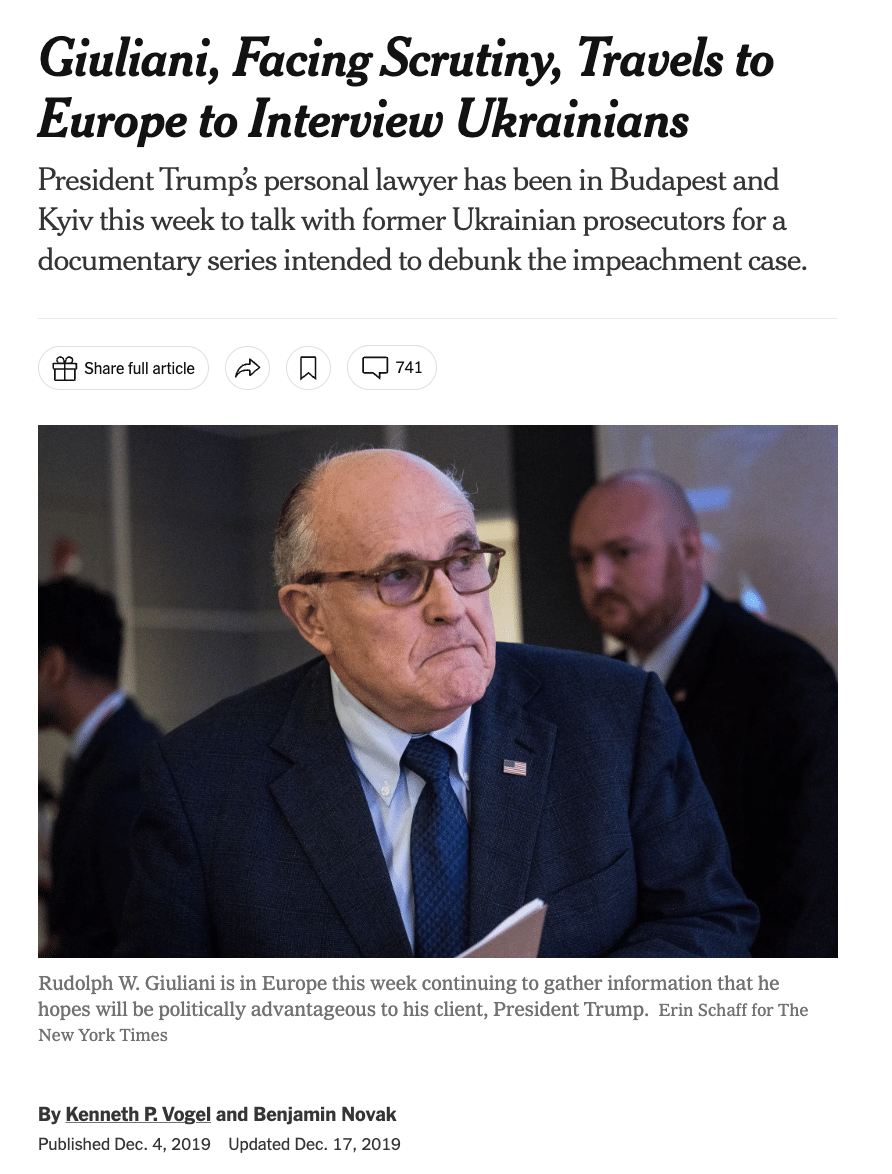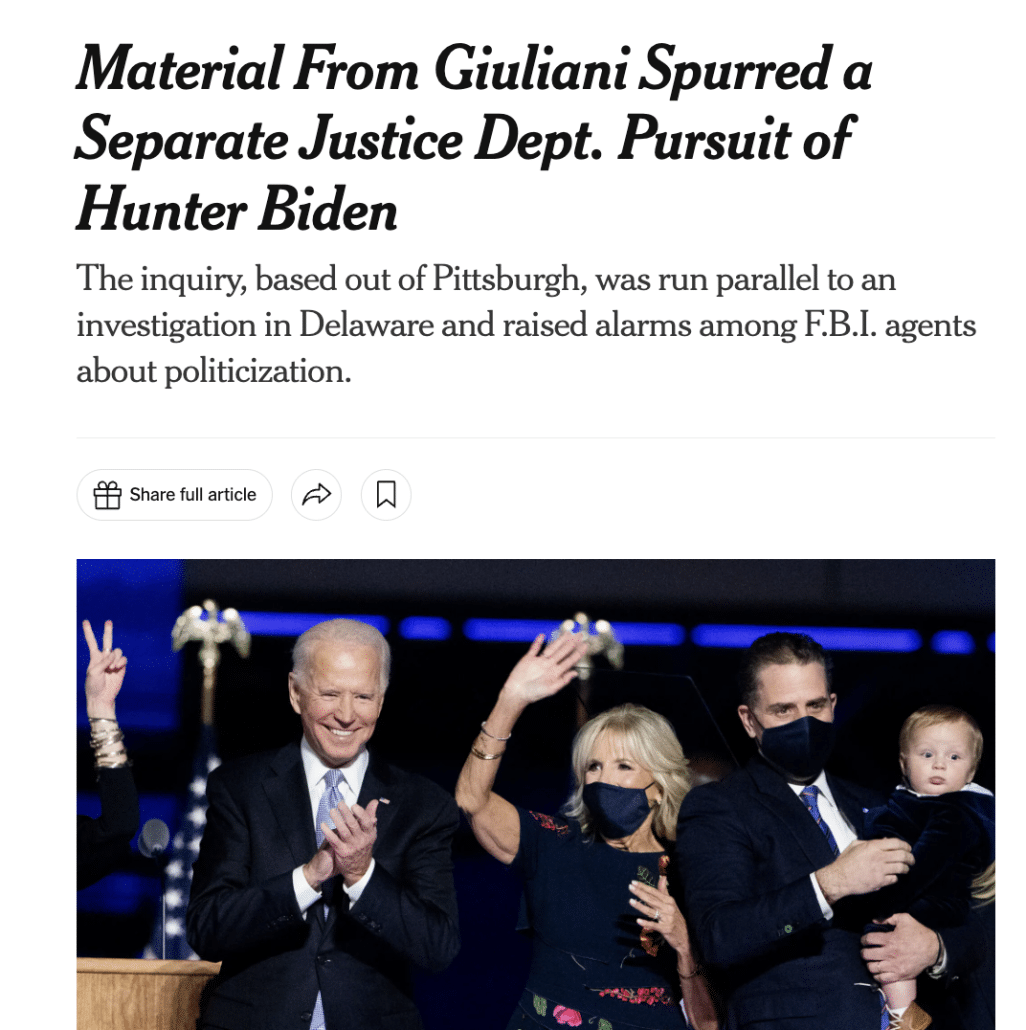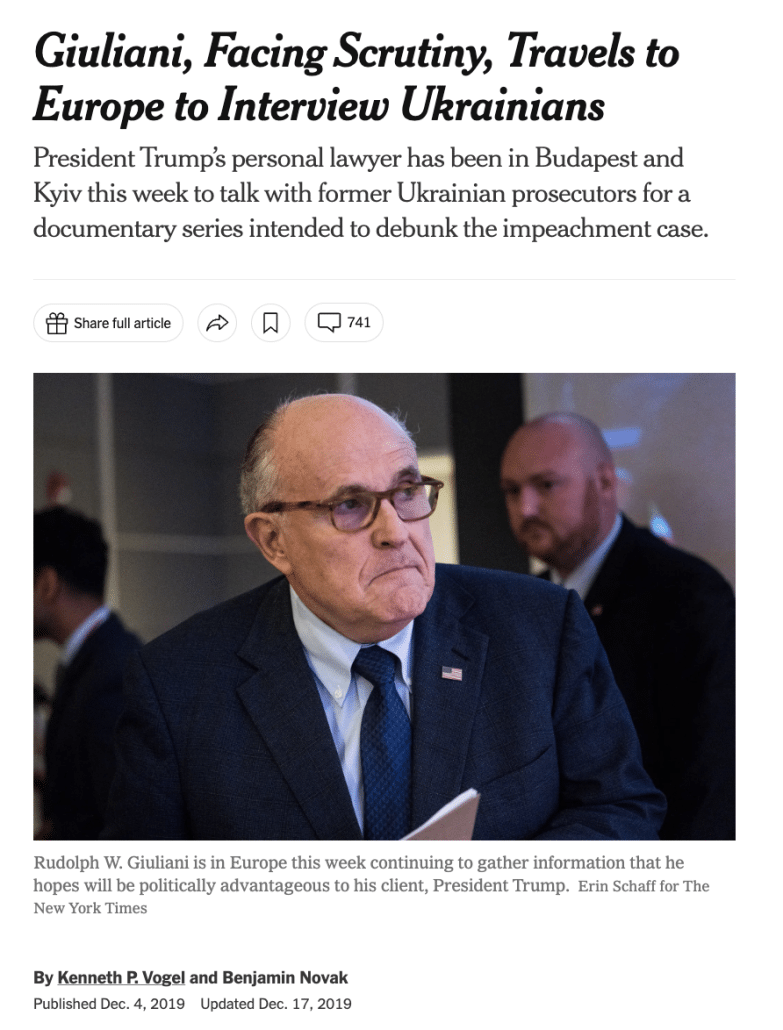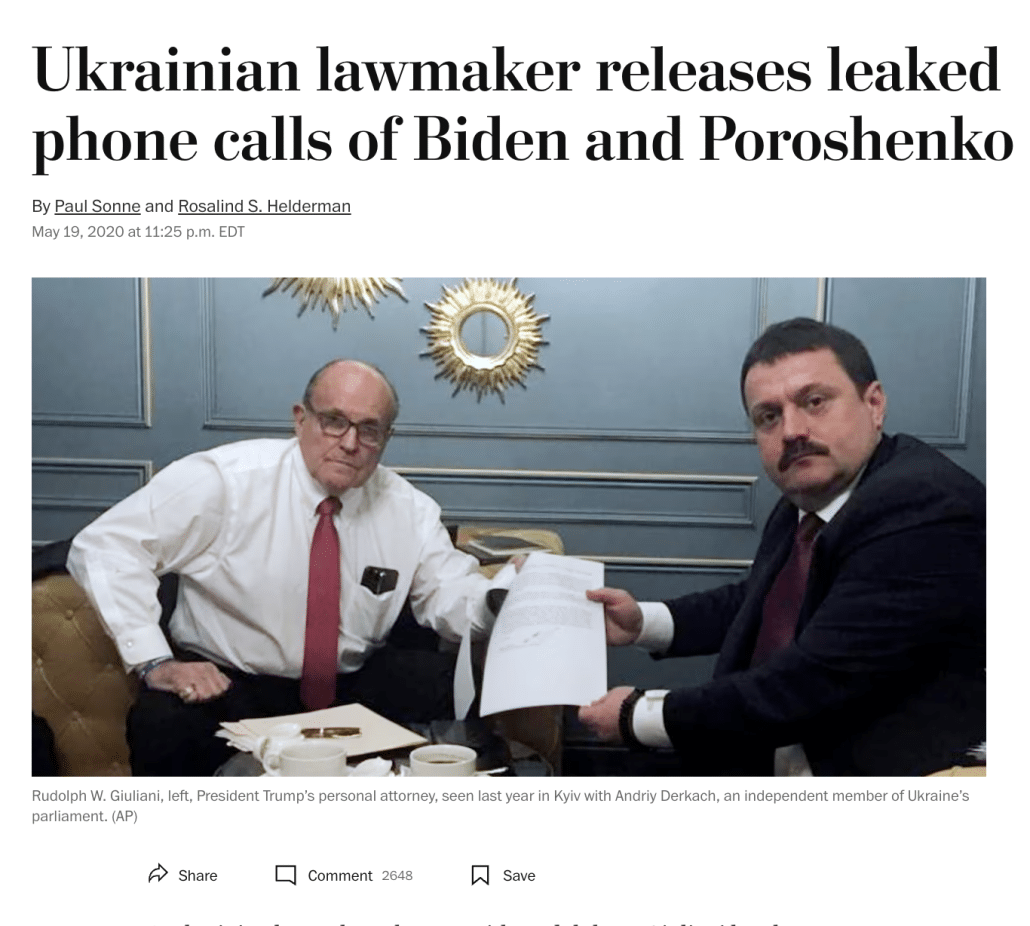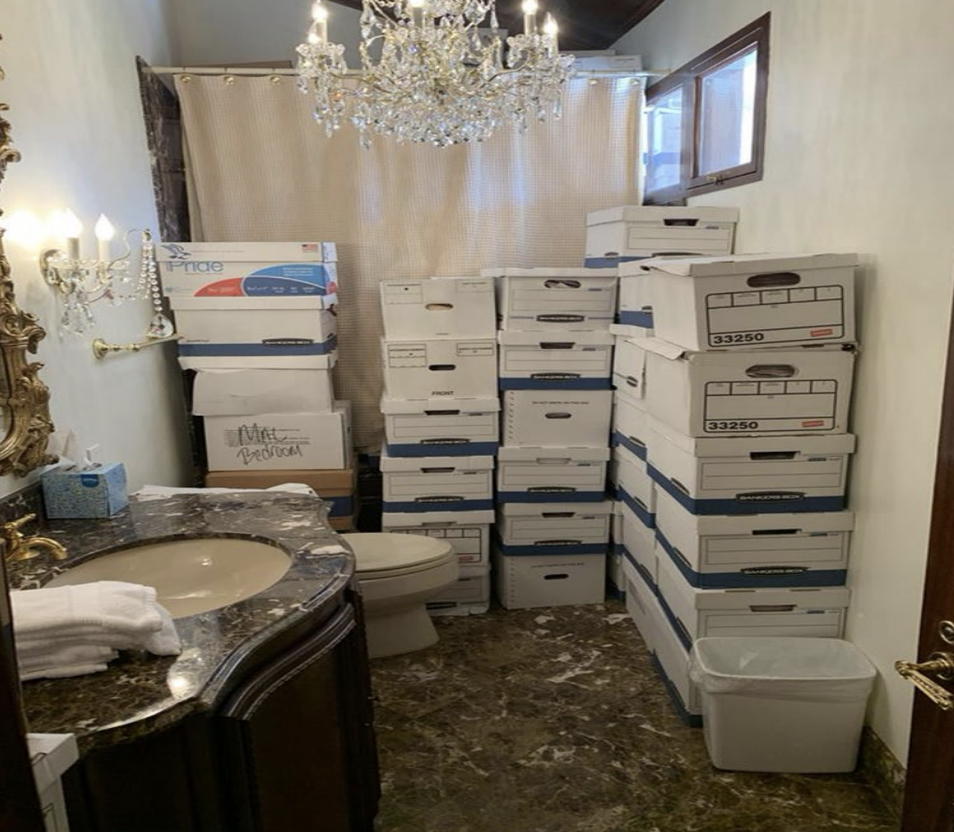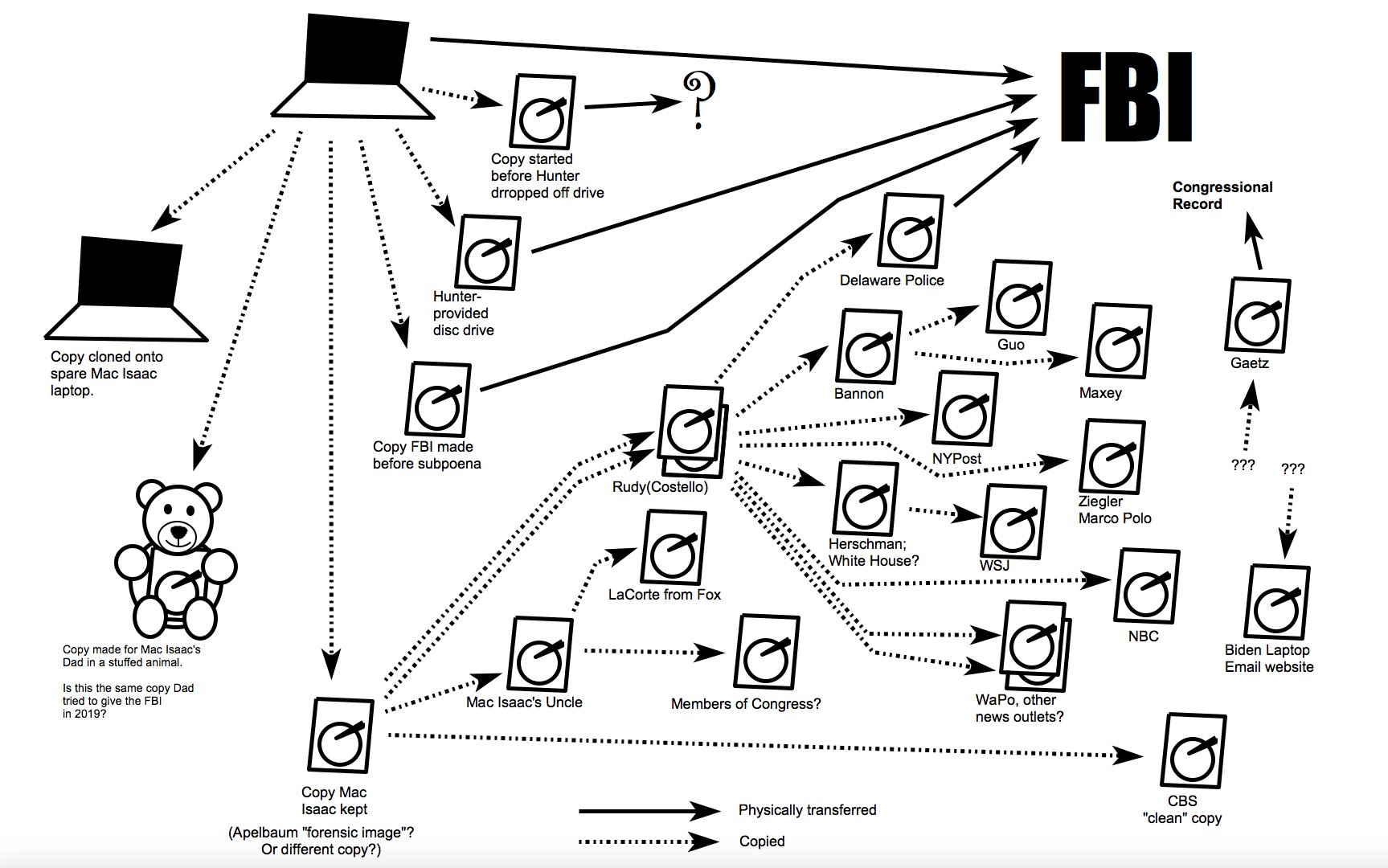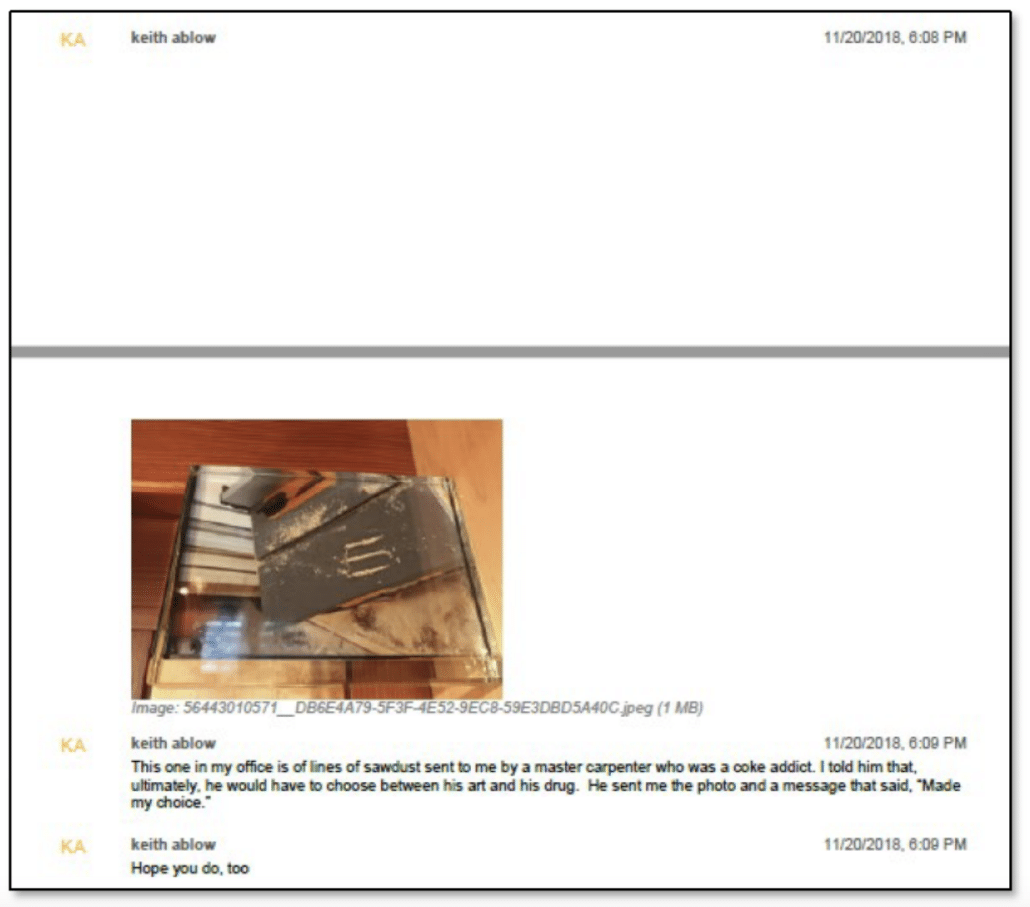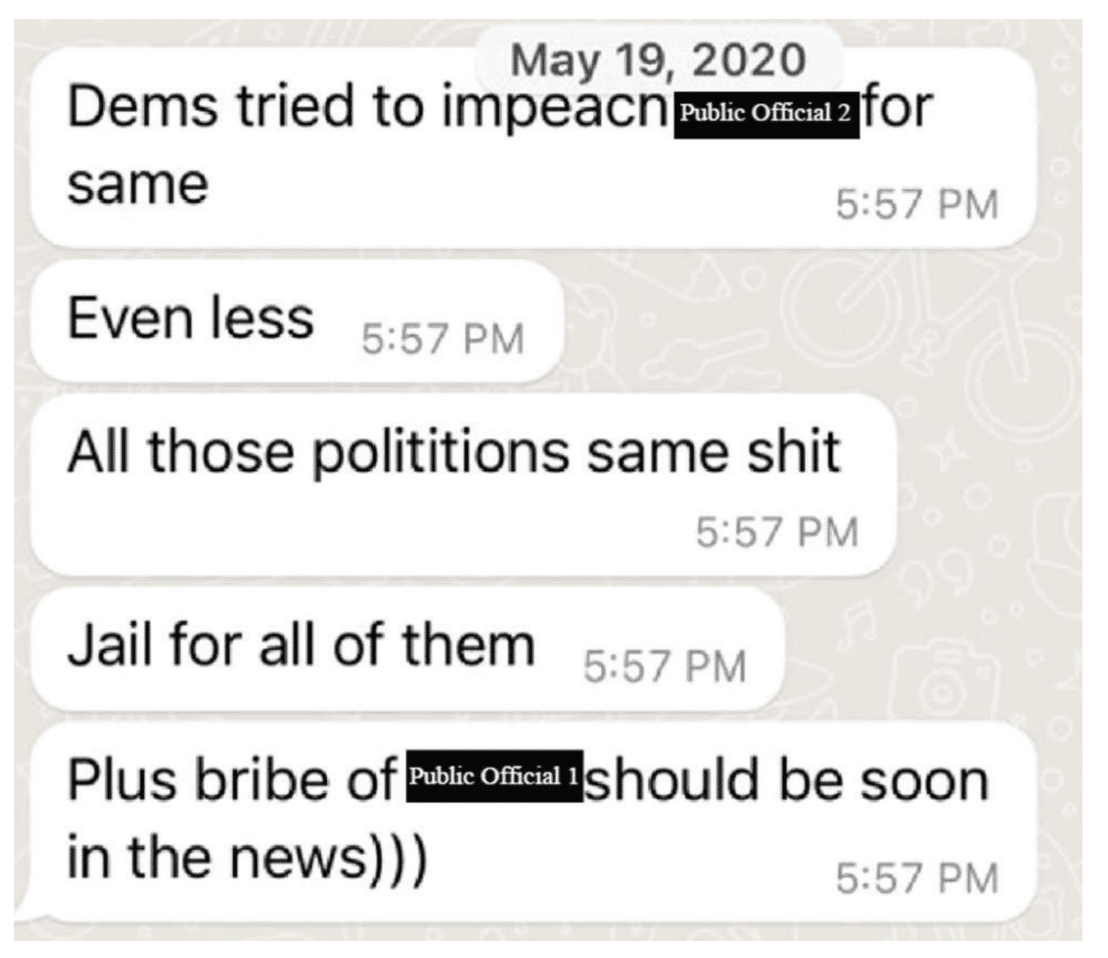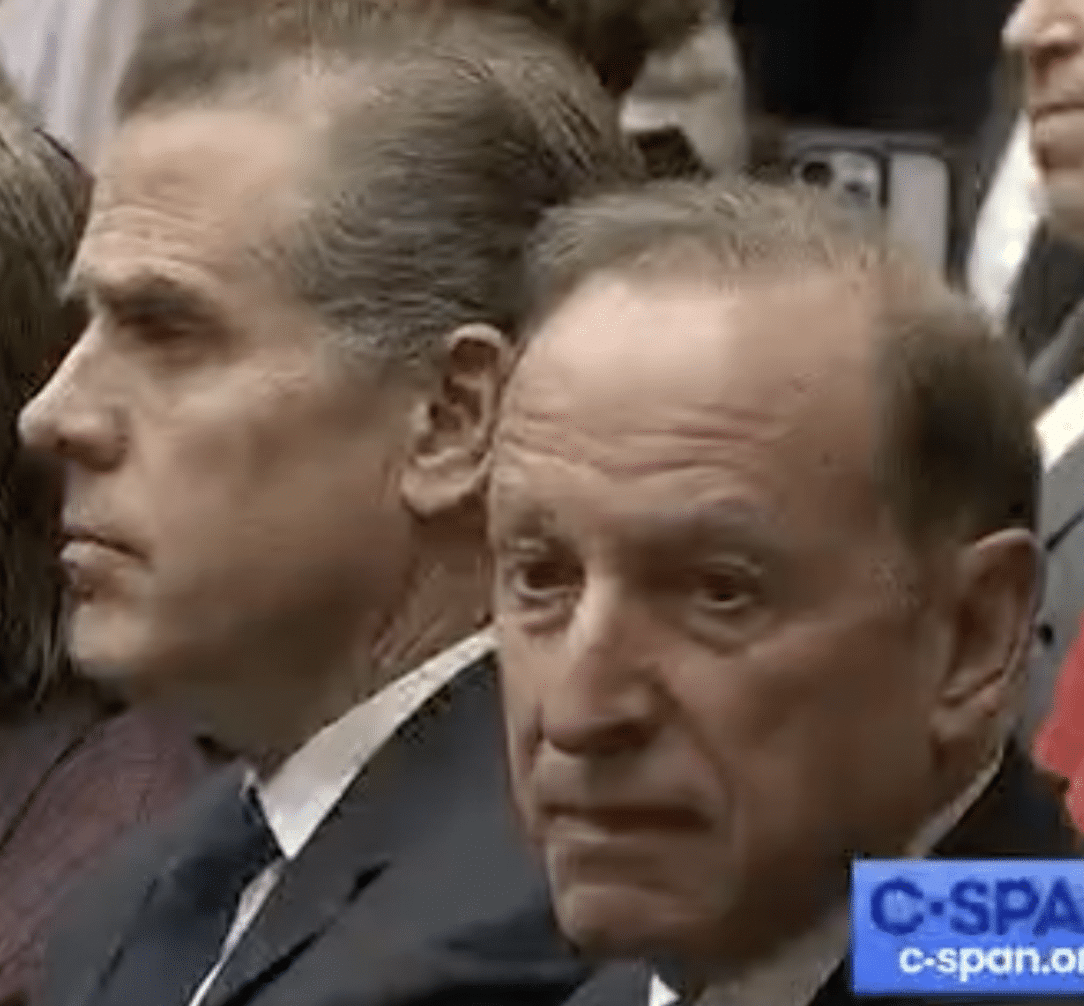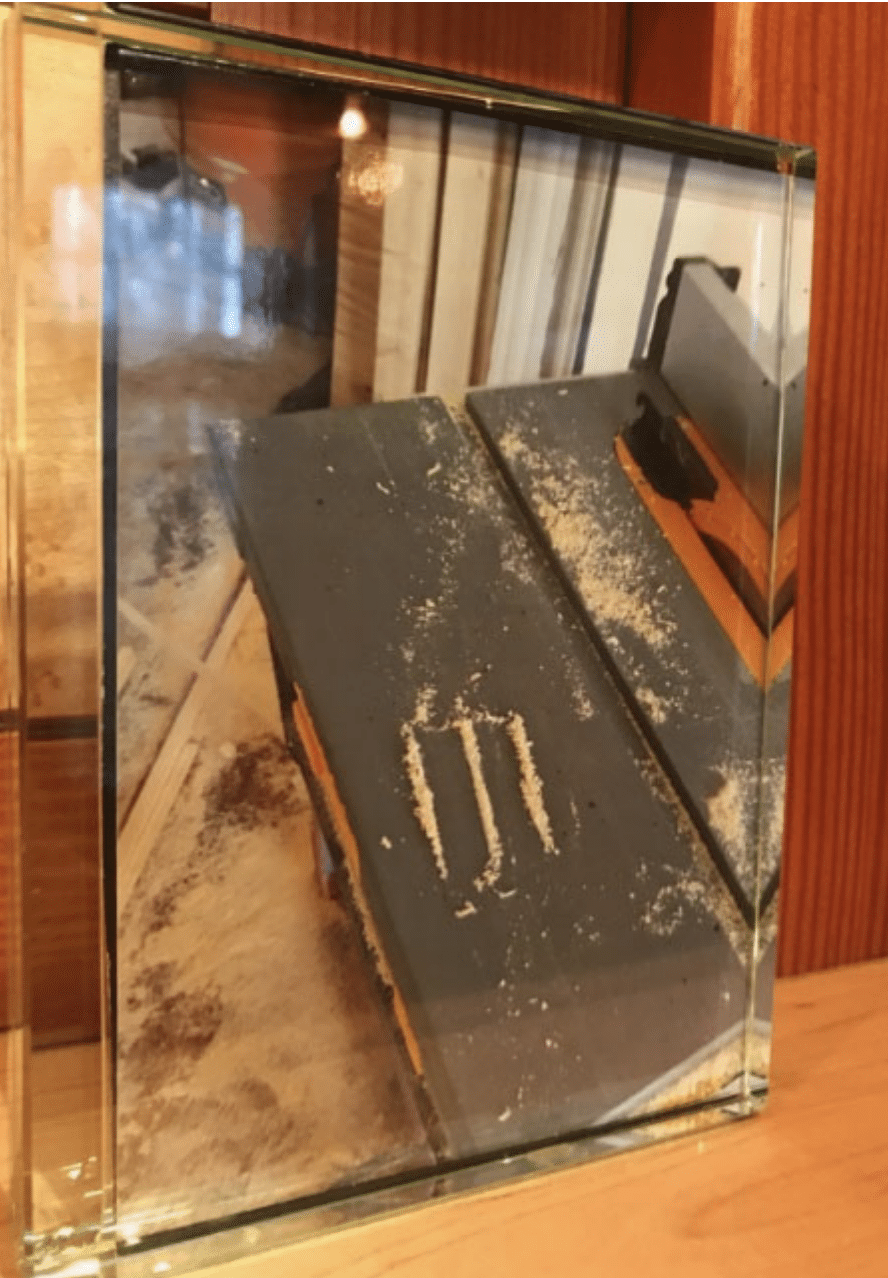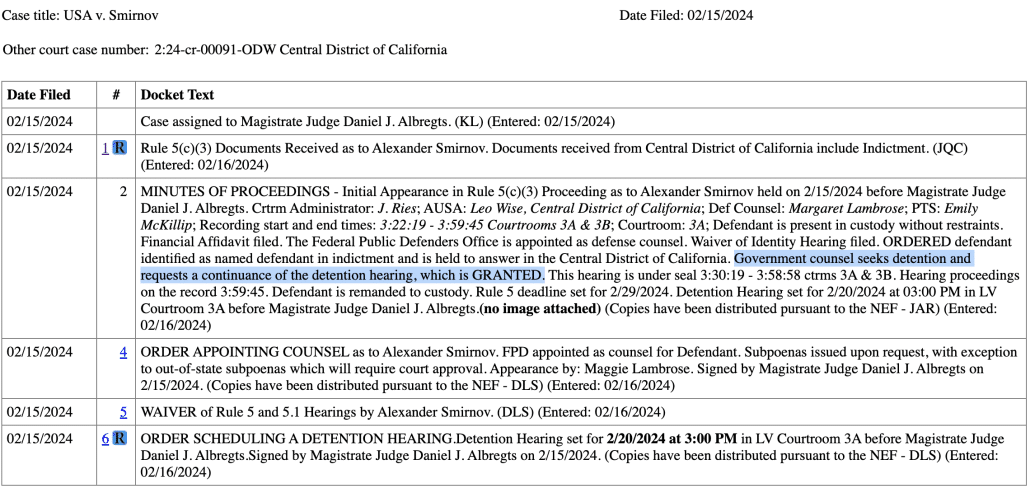Trump’s Defense: He Intended to Steal Boxes and Boxes of Classified Documents
/90 Comments/in 2020 Presidential Election, Leak Investigations /by emptywheelAs I have been noting for months, in all of Jack Smith’s rebuttals to Trump’s claims that Presidents have absolute immunity, he floated scenarios that are pretty similar to stuff that Trump is known or suspected of doing.
One of those is, “a president who sells nuclear secrets to a foreign adversary.”
As I noted in response to Trump’s claim that that would be treason, Trump has done a whole lot that’s improper with classified information.
The closest thing on that list to treason is selling nuclear secrets to America’s adversaries. Not treason.
But Trump’s lawyers, including two of the lawyers representing him in the stolen documents case, lawyers who had their first good look at the documents Trump is accused of stealing last week, seem to suggest it could be.
To be clear: Trump has never been accused of selling nuclear secrets to America’s adversaries.
He undoubtedly gave Israel’s counterterrorism secrets to Russia — why, and whether there was a quid pro quo involved, we still don’t know.
He is known to have Tweeted out highly sensitive satellite information to dick-wag Iran, with the result that Iran learned about the satellites targeting their country.
To spite Mark Milley, he showed a plan to attack Iran to Mark Meadows’ ghost writers.
Ongoing reporting, first from ABC and then from NYT, reveals that after Australian billionaire Anthony Pratt paid millions for access to Trump, Trump shared details of a conversation he had about a call he had with Iraq’s president after bombing Iraq, described his perfect phone call with Volodymyr Zelenskyy, and provided sensitive details of America’s nuclear subs.
And he is accused of leaving nuclear documents — documents that Trump’s lawyers may have reviewed for the first time last week — in unsecure ways at his beach resort, possibly even in his gaudy bathroom.
So, no. Trump has not (yet) been accused of selling nuclear secrets, to adversaries or anyone else. Though he did give away what he claimed to be nuclear secrets to a businessman from an allied nation after the guy paid a lot of money for access to Trump.
But as I noted, we don’t yet know what happened to some of the secret documents that Trump snuck away from Mar-a-Lago after hiding them from Evan Corcoran in June 2022, documents he took with him to host a golf tournament the Saudis paid an undisclosed sum to host at Bedminster.
Those documents have never been located.
Just so long as Trump didn’t sell any of these nuclear documents, but instead gave them away, I’m sure we’re all good.
That’s important background to Trump’s primary defense in his stolen documents case. Between his motion to dismiss because the Presidential Records Act doesn’t say what he claims it says and his motion to dismiss for absolute immunity, he is arguing that he intended to steal boxes and boxes of classified documents.
The latter argument is substantially the same garbage argument Trump has made to the DC Circuit and SCOTUS. The former is a real piece of work, even by Trump’s standards. Here his argument:
- Before the Presidential Records Act was passed, Presidents treated presidential papers — which are different from government classified documents — as their personal property
- Because NARA had no authority, after Bill Clinton left office, to reclassify tapes of personal conversations Clinton made so Tom Fitton could have them, it means NARA has no authority over what counts as a presidential or personal record
- Bill Clinton’s personal tapes are exactly the same as the boxes and boxes of official documents Trump sent to Mar-a-Lago
- Without providing any evidence Trump did classify all those official documents as personal documents, he will nevertheless claim he did so while still in office
- Robert Hur’s report describing seizing all of Joe Biden’s diaries — which are specifically excluded from the PRA — is proof that Presidents control all official documents they stash away
- Cmon, Judge Cannon, you made the ridiculous argument I own these documents once already, only to have the 11th Circuit rip you a new asshole, but why can’t you make precisely that argument again?
- Charging Trump for actions he took after leaving the White House is the same as supervising his actions day-to-day
- Because DOJ declined to second-guess Mark Meadows’ spectacular failure to declassify documents Trump wanted to give to John Solomon, it means DOJ must accept Trump’s vague assertion that he didn’t spectacularly fail to declassify boxes and boxes of documents either
- These boxes and boxes of official documents, which are not excluded from the PRA, are just like Reagans diaries, which are specifically excluded
- Clinton’s conversations about official stuff are just the same as the official documents documenting that kind of stuff
- Because NARA had never made a criminal referral before February 2022, the fact that it has since made two means it couldn’t make any
- Trump didn’t think he’d get busted, so it was improper for FBI to bust him
- DOJ should have dealt with me like they did with Peter Navarro when he also blew off the PRA
- Because DOJ refused to seize unclassified personal Clinton recordings so Tom Fitton could have them, it means DOJ could not seize classified official documents so NARA could have them
Ultimately, though, the two arguments together are very simple. First, from the PRA filing, Trump intended to take those boxes and boxes of classified documents.
The Special Counsel’s Office concedes that the “genesis” of this case dates back to at least “the tail end of the Trump Administration itself.” Compel Oppn. at 3.2 The Office alleges in the Superseding Indictment that President Trump “caused scores of boxes, many of which contained classified documents, to be transported” to Mar-a-Lago. ECF No. 85 ¶ 4 (emphasis added). The Superseding Indictment makes clear that this decision and the related transportation of records occurred while President Trump was still in office. Id. ¶ 25 (alleging that President Trump caused boxes of records to be packed and shipped “[i]n January 2021, as he was preparing to leave the White House” (emphasis added)). President Trump departed the White House prior to “12:00 p.m. on January 20, 2021,” and as such he is alleged to have made these decisions concerning the documents at issue while he was the Commander-in-Chief. Id. ¶ 4.
And, from the immunity filing, because Trump stole those boxes and boxes of classified documents while he was still Commander-in-Chief, he has immunity from prosecution for doing so.
Specifically, President Trump is immune from prosecution on Counts 1 through 32 because the charges turn on his alleged decision to designate records as personal under the Presidential Records Act (“PRA”) and to cause the records to be moved from the White House to Mar-a-Lago. As alleged in the Superseding Indictment, President Trump made this decision while he was still in office. The alleged decision was an official act, and as such is subject to presidential immunity.
[snip]
Even if the Special Counsel’s Office could establish that President Trump’s designation decision under the PRA was illegal or otherwise improper—and they cannot—“the President’s actions do not fall beyond the outer perimeter of official responsibility merely because they are unlawful or taken for a forbidden purpose.” Blassingame, 87 F.4th at 14. The Supreme Court has so held, repeatedly. After all, every claim of immunity is raised against charges of allegedly improper motive or purpose. See, e.g., Fitzgerald, 457 U.S. at 756 (rejecting a rule that would permit “an inquiry into the President’s motives” as “highly intrusive”); Pierson v. Ray, 386 U.S. 547, 554 (1967); Barr v. Matteo, 360 U.S. 564, 575 (1959) (“The claim of an unworthy purpose does not destroy the privilege.” (citation omitted)); Spalding v. Vilas, 161 U.S. 483, 498 (1896) (holding that immunity does not turn on “any personal motive that might be alleged to have prompted his action”); Bradley v. Fisher, 80 U.S. 335, 354 (1871) (holding that immunity “cannot be affected by any consideration of the motives with which the acts are done”); see also, e.g., Gregoire v. Biddle, 177 F.2d 579, 581 (2d Cir. 1949) (Hand, J.). In short, in assessing whether immunity applies, courts must look to the “nature of the act itself.” Stump v. Sparkman, 435 U.S. 349, 362 (1978). The allegedly improper manner or purpose of the alleged acts is not relevant. Fitzgerald, 457 U.S. at 756. Therefore, President Trump is entitled to immunity for this official act and that must include immunity from criminal prosecution.
This is, quite literally, an argument that it was totally legal for Trump to choose to steal boxes and boxes of classified documents.
Ken Vogel Covers Up Rudy Giuliani and His Alleged Russian Spies
/58 Comments/in 2020 Presidential Election, 2024 Presidential Election, emptywheel, Hunter Biden /by emptywheelAmid rising criticism that it is burying the Alexander Smirnov scandal while continuing to flood the market with yet more transphobia and complaints that Biden’s age might be worse than Trump’s promise to let Russia attack NATO states, NYT has added Ken Vogel to the Hunter Biden beat.
Congratulations, Devlin Barrett. You are no longer the most inappropriate mouthpiece to work the dick pic sniffing beat.
Vogel wrote a story with Glenn Thrush that really struggled with basic details about the Hunter Biden investigation. For example, like Devlin in his own story, the men claimed to be unable to understand how David Weiss’ renewed focus on Smirnov’s FD-1023 might explain why Leo Wise said that FARA charges were still on the table on July 26, 2023 when Weiss’ First AUSA had told Chris Clark a month earlier on June 19, “there was not another open or pending investigation.”
In a court filing, they contended that Mr. Smirnov’s false claims “infected” the cases, and suggested, without providing evidence, that prosecutors reneged on a plea deal last summer because they had followed “Mr. Smirnov down his rabbit hole of lies.”
There was no ongoing investigation on June 19. And then, facing pressure from Congress and Bill Barr, David Weiss twice said (the second time in his House Judiciary Committee testimony) that the FD-1023 was part of the newly ongoing investigation. The September 27 interview of Smirnov could not, yet, have been an investigation of Smirnov, because Weiss treats his indictment as a “matter[] that arose” in his investigation of Hunter Biden. Weiss had to have been chasing Smirnov’s manufactured bribery claim, not Smirnov himself, yet.
It’s not the struggle with basic facts about the Hunter Biden investigation that I find so remarkable, though. That’s pretty typical from people on the dick pic sniffing beat.
It’s the shamelessness by longtime Rudy Giuliani mouthpiece Ken Vogel of his cover-up of Rudy’s role in all this.
The men claim, for example, that it was the sheer volume of tips about Hunter Biden that led Bill Barr to set up a secret special intake process starting on January 3, 2020, at a time when there was already an investigation into Hunter Biden that could have … just taken those tips.
For instance, he appears to have told the F.B.I. that a business associate who introduced him to Burisma executives had ties to Russian organized crime, according to notes of this conversation, which do not indicate whether there is proof of the claim.
It is the sort of raw intelligence that law enforcement routinely collects and vets behind closed doors before determining whether to act on it, the investigation into Hunter Biden’s foreign business dealings attracted so much of it that the Justice Department created a special intake process.
They make that claim while linking to this NYT story (still one of the best on the Scott Brady side channel), which mentions Rudy Giuliani two dozen times, including in the headline.
They claim Smirnov’s tip was simply shared with Scott Brady’s side channel, when the testimony they link describes Brady asking the FBI to search for Hunter Biden and Burisma (still an unconvincing claim, particularly given Chuck Grassley’s claim that the tip came from an investigation into Mykola Zlochevsky that had been shut down days earlier).
A federal prosecutor involved in screening claims about Mr. Biden’s foreign work testified last year that Mr. Smirnov was an “important confidential human source” who “had been used in other investigations.”
They don’t mention that the Brady transcript they link mentions Rudy 126 times, including descriptions of the interview Brady conducted with Rudy, an interview with someone under active criminal investigation that was not shared with the people conducting that criminal investigation, an interview in which Seth DuCharme had requested Brady participate personally, “so we get a sense of what’s coming out of it,” an interview in which Rudy was less than forthcoming about Rudy’s indirect interview of Zlochevsky the previous year.
But the most astonishing aspect of Ken Vogel’s claim that “the investigation into Hunter Biden’s foreign business dealings attracted so much [raw intelligence] that the Justice Department created a special intake process” — again, NYT is making this claim about a side channel to an existing investigation that even Brady says is where such intelligence could actually be vetted, with subpoena power — is that Ken Vogel broke the story of Rudy’s December 2019 trip to meet with, among others, a bunch of people who have since been sanctioned as participants in Russian influence operations.
Vogel described, in real time, Rudy meeting with Kostiantyn Kulyk and Andrii Telizhenko, who both would be sanctioned by Steve Mnuchen’s Treasury on January 11, 2021. Vogel’s story about Andrii Derkach’s sanctioning on September 10, 2020 — again, by Mnuchen’s Treasury — describes that Giuliani met with Derkach on that same trip.
Vogel knows that the leads that Bill Barr set up a special side channel to claim to vet (Brady’s transcript reveals how shoddy his vetting was, including his claim that Smirnov’s travel records were consistent with Smirnov’s bribery allegation when the indictment alleges that the travel records prove his claims to be false) didn’t just appear out of nowhere. It wasn’t the volume of the leads that required some intake process before the leads got shared with the preexisting investigation of Hunter Biden.
It was the fact that the President’s lawyer had solicited help from people US spooks were pretty sure were Russian agents, and rather than warning Rudy off that effort, DOJ instead set up a special accommodation via which DOJ might share information from Russian spies with those investigating Trump’s rival’s son, a special accommodation that could, and did, protect Rudy from any legal consequences for soliciting campaign help from Russian spies.
And then by some remarkable coincidence, while purportedly vetting all this dirt solicited by Rudy Giuliani, Scott Brady went out and through still unexplained means found the guy who happened to be willing to fabricate a claim about Burisma bribing Joe Biden.
Only, it probably wasn’t a wild coincidence. The Smirnov indictment ties Smirnov’s dangles of claims against Biden to this article about Rudy soliciting help from Andrii Derkach.
Ken Vogel knows Rudy’s role in the side channel that led to the Smirnov claim as well as anybody. But his story about the side channel covered up Rudy’s role — two dozen mentions at one of his links and over a hundred at the other — and in the process covered up the Russian spies that necessitated the side channel.
Update: In a really good timeline of the back history of the FD-1023, Glenn Kessler describes that Bill Barr doesn’t want to talk about it.
Barr spoke briefly to The Fact Checker, off the record, before hanging up the phone.
Update: Jerry Nadler has asked Michael Horowitz to investigate Scott Brady for, among other things, his misleading testimony.
Update: Fixed year on Rudy’s trip to visit the Russian spies.
Stolen Documents Motions to Dismiss
/21 Comments/in 2020 Presidential Election, 2024 Presidential Election, Leak Investigations /by emptywheelTrump and at least Carlos De Oliveira are filing motions to dismiss (some are being unsealed via a review process). I’ll post them here until I read in more detail.
De Oliveira MTD or Bill of Particulars
Trump’s claim of presidential immunity to steal documents
Trump’s claim that he’s too stupid ot understand 18 USC 793(e)
Trump’s Special Counsel claim (repeating Hunter Biden’s appropriation claim)
Trump’s claim the Presidential Records Act says the opposite of what it says with assist from John Solomon
Still to come: A motion to suppress the search of Mar-a-Lago
Happy Delaware Laptop Day, for Those Who Celebrate
/144 Comments/in 2020 Presidential Election, 2024 Presidential Election, Hunter Biden /by emptywheelIf I read the docket correctly, in a courtroom in Delaware today, Judge Robert Robinson will hear John Paul Mac Isaac’s motion to dismiss and Hunter Biden’s motion for summary judgement in the suit and countersuit over whether JPMI was legally entitled to first snoop through and then start disseminating data from a laptop JPMI claims to believe was dropped off by Hunter Biden, and whether a single statement Hunter Biden made about possibly being hacked that didn’t even name JPMI could be considered defamation.
Because CNN and Politico will also be arguing their motions to dismiss against the blind computer repairman in a follow-on to the same hearing, we might get some press coverage of the hearing. If not, it’s possible that a hearing that has the possibility of roiling 40 months of relentless Murdoch propaganda and both criminal cases against Hunter Biden will go uncovered.
No dick pic sniffer can control their glee that Hunter Biden has a deposition before Congress next week; they don’t seem to give a shit — or, even know — that a hearing that may determine the legal status of the laptop is happening today.
To mark the day, I wanted to return to a few details from Hunter Biden’s reply motion to compel from the other day.
First, on pages 3-4 in the section rebuking David Weiss for calling Keith Ablow’s photo of a photo of a table saw and sawdust a picture of Hunter Biden’s cocaine, the filing includes the text exchange explaining the photo.
2 The message excerpt on the following page is found on the data image provided to Mr. Biden by the prosecution (iPhoneXS_Chat_00000132). There is no Bates stamp for this material as discussed in Mr. Biden’s opening motion. (See Mot. at 18.)
The text appears to come from the iPhone XS that Gus Dimitrelos described as being encrypted on the device, along with a handy password stored right there on the laptop. Readers who have been following my voyage down the Hunter Biden rabbit hole will remember it all started when I read Gary Shapley’s notes indicating that the FBI, too, used a password discovered on the laptop to access the phone.
Laptop — iphone messages were on the hard drive but encrypted they didn’t get those messages until they looked at laptop and found a business card with the password on it so they were able to get into the iphone messages [my emphasis]
I opined at the time that, while the FBI might get away with accessing this encrypted device without a separate warrant, anyone else who accessed it — as Garrett Ziegler keeps confessing he did — may have committed a CFAA violation. Curiously, though, the FBI did get separate warrants for all the other devices backed up separately. That’s what the July 10, 2020 warrant did: permit the FBI to access four device backups that were already in hand, but that were separate backups.
Not this phone, though, the phone on which the photo of the photo of the table saw and sawdust that David Weiss claimed was cocaine might be found.
So on pages 3-4, Abbe Lowell explained that one place you might find Keith Ablow’s photo of the photo of the table saw and sawdust that Weiss misstook for cocaine was on a phone that was encrypted when the FBI first got the laptop.
Starting 16 pages later, Lowell returned to his request that prosecutors actually describe where they found particular pieces of evidence. Lowell explained that, yes, while it is true that last August he asked for an exact copy of the laptop, which “will be needed, for example, to challenge the chain of custody, provenance, or likely tampering with the data before it came into the possession of the government,” he also expected that prosecutors would provide some roadmap for where they’ve found things.
The prosecution mixes apples with oranges in charging that Mr. Biden is being “dishonest and misleading” in objecting to what the prosecution contends was a laptop it obtained being produced in the native format that he requested (Opp. at 19), but that is disingenuous. To be sure, Mr. Biden asked for an exact copy of the laptop so it could be examined in the same way in which it was originally found, which is helpful in making a forensic examination of the laptop. That will be needed, for example, to challenge the chain of custody, provenance, or likely tampering with the data before it came into the possession of the government.
However, this motion seeks something more—something traditionally provided in discovery. The crux of Mr. Biden’s complaint here is that the prosecution has not supplemented that production with an index or some other means that would identify which of the vast materials on the laptop the prosecution believes are relevant to this case. The request for the forensic copy is not the same. If the prosecution is claiming that it has not indexed the 220 gigabytes of data (which would be an odd statement), then it needsto say that, and, as with other requests, the dispute will end. If it does have what it normally has with vast amounts of e-data, without providing more, the defense is in a needle in a haystack situation.
Then he noted that the labels Derek Hines used for where investigators found things weren’t all that helpful, because those “titles [] are not even remotely descriptive of what they contain.”
This amount of mixed media data in this tech age is difficult to navigate. The text messages and photos cited by the prosecution in its motions, for example, are difficult to locate. They are “buried” in a convoluted collection of different backup folders and files and are not stored in one streamlined digital backup or application. The messages and photos cited come from “Apple iCloud Backup 01”; “Apple iTunes Backup”; “Apple iCloud Backup 04”; and “iTunes Backup (iPhone 11),” titles that are not even remotely descriptive of what they contain. (See DE 86-1.) For this reason, Mr. Biden requested an index of material (which the prosecution has now clarified it does not have), or Bates stamps for that which it had cited. (Opp. at 19.)
And not just what they contain, I’d add. The label, “iTunes Backup (iPhone 11),” which is where Hines described finding the photo of a photo of a table saw and sawdust almost certainly couldn’t be what Hines described it as — an iPhone 11 — because (as zscoreUSA noted) Apple didn’t announce the iPhone 11 until September 10, 2019, after the laptop was dropped off at JPMI’s shop and after a warrant was served on Apple.
I asked David Weiss’ spox about this, but it was another of a growing stack of questions of mine to which he didn’t even bother responding.
And Abbe Lowell — curse you! — isn’t much more help. Given his response that prosecutors have now fulfilled his request for guidance on where they found things, he must know whether iTunes Backup (iPhone 11) is that iPhone XS that was encrypted on the hard drive, but he’s not telling either.
In his opening motion, Mr. Biden merely requested, following the prosecution’s citation to myriad text messages and photos in its responses, that the prosecution indicate where on the image it provided Mr. Biden could find those referenced materials. (Mot. at 18.) The reason for this request was straightforward at the time: defense counsel could not locate certain of the messages and photos given the broad date ranges used by the prosecution to describe them (e.g., photos taken “Prior to October 12, 2018”; messages sent “prior to his gun purchase”; and photos taken “During November and December 2018”). (DE 86-1.) Mr. Biden appreciates that with the Exhibit filed with its opposition, the prosecution has now fulfilled this part of his request.
But Abbe Lowell did say this: at a meeting in August of last year, the first time when Lowell asked for a complete copy of the laptop (he had to ask again a month later), prosecutors told him that they had “independent sources” for everything helpful to their case.
As to the meeting between Mr. Biden’s counsel and prosecutors in Wilmington on August 29, 2023 (Opp. at 19), Mr. Biden notes that prosecutors indicated, during that meeting, that they possess “independent sources” for any material on the laptop device that would be helpful to the prosecution’s case, presumably referring to material subpoenaed from third parties, such as Apple, Inc. or various cellphone carriers. For this reason, it was curious to Mr. Biden’s counsel when reviewing the prosecution’s response that it elected to cite to and quote from messages and photos contained on the device it possessed (lacking any Bates stamps) rather than from those “independent sources” included in the discovery produced to the defense. That is precisely why Mr. Biden requested the prosecution indicate where on the device he could find the quoted messages and referenced photos, and why he suggested these files were “left buried” among a set of voluminous files that, as made clear now, span multiple iPhone, iTunes, and iCloud backups. (Opp. at 19 (quoting Mot. at 17).) Nevertheless, Mr. Biden appreciates the prosecution providing the folder locations of the messages and photos it referenced. [my emphasis]
Remember: when they said that on August 29, 2023, they still had never obtained a warrant to search the laptop, or any of Hunter’s Apple content, for that matter, for evidence to support the gun crime. They also had not, and still have not, indexed the laptop so they know what is on there and how it got there.
And prosecutors are still saying that everything they need is available on Hunter’s iCloud account. Sort of. In the passage of the response where Hines raised this August 2023 request, he insisted that, “the primary source of evidence in this case is the evidence obtained from the defendant’s Apple iCloud account, which was produced to the defendant in a readily searchable format.”
No. No it is not. Here’s my updated table of what Hines included in his exhibit, updated so that the photo of a photo of a table saw and sawdust appears where it temporally belongs, showing that an iPhone XS received a text from Keith Ablow on November 20, 2018, the same day that some anomalous activity was happening with Hunter’s droidhunter account and in a period when an iPad attributed to Hunter was otherwise sending (but with just one exception, not necessarily delivering) a whole bunch of texts about being an addict. I’ve highlighted the records that don’t include hex numbers and aren’t obviously sourced to one of the iCloud backups for dramatic effect. Lowell’s comment seems to confirm that Derek Hines sourced the highlighted records to the laptop.
In addition to the sawdust photo and one of a box that, a new commenter noted is also not from Hunter, it is from Hallie, and even if it indicates drug use, it is much earlier drug use, the most important texts to the government’s case, the ones between Hunter and Hallie while he possessed the gun, appear to be sourced to the laptop.
So in August, at a point when prosecutors had never gotten legal permission to search the laptop for evidence of gun crimes, they nevertheless assured Abbe Lowell that everything they needed was available via verifiable sources. And then this month — just days before a Delaware court may resolve the matter of whether JPMI owned the laptop when, he claims, an FBI agent told his father to lawyer up because, “You may be in possession of something you don’t own” — Hines claimed that, “the primary source of evidence in this case is the evidence obtained from the defendant’s Apple iCloud account, which was produced to the defendant in a readily searchable format.”
And then he sourced the most important texts to his case to the laptop — a source that not only isn’t readily searchable, but is not even indexed.
Happy Delaware laptop day, everyone. Things might start to get interesting.
Update: The docket reflects that Judge Robinson reserved judgment on Hunter Biden’s motion for summary judgment and CNN and Politico’s motions to dismiss.
Update: NBC’s Gary Grumbach did a thread on the hearing. By his description, Hunter Biden will kill the suit against him easily (unsurprisingly, as he didn’t even mention JPMI’s name). But Grumbach didn’t include much of what must be a legal discussion about JPMI’s decision to release the information to Rudy.
Update, from comments: A detailed local report on the hearing, providing the detail that the biggest problem for Hunter’s claims are that he waited too long to sue.
Illustration of all the dissemination implicated in today’s hearing from Thomas Fine.
Click here for Hunter Biden’s Eight Legal Chessboards including links to all filings and schedules for other cases, including the Delaware lawsuit.
David Weiss Was Planning on Using Alexander Smirnov’s Claims against the Bidens Until He Wasn’t Anymore
/124 Comments/in 2020 Presidential Election, 2024 Presidential Election, Hunter Biden /by emptywheelOn November 16, CNN reported on David Weiss’ ongoing use of a California grand jury. It reported that by that point, the FBI had concluded its renewed look at money laundering and FARA violations and was not going to file charges.
Prosecutors working under Weiss told a judge earlier this year that in addition to tax charges, they could also bring charges related to possible violations of the Foreign Agent Registration Act. Internal Revenue Service investigators who were part of the Hunter Biden investigation have alleged that the prosecutors slow-walked and blocked efforts to look into possible money laundering and foreign lobbying allegations.
The FBI, which oversaw the money laundering and FARA portions of the investigation, concluded its findings and didn’t anticipate charges to emerge from those allegations, people briefed on the matter told CNN.
That was over a month after the September 27 interview at which Smirnov renewed and expanded his lies. No charges were going to be filed on November 16, CNN reported.
But on November 15, Abbe Lowell asked for discovery on the Scott Brady side channel and subpoenas to serve on people like Trump and Bill Barr.
- All documents and records reflecting communications from January 20, 2017 to the present (the “Relevant Time Period”) to, from, between, or among Donald J. Trump, William P. Barr, Geoffrey Berman, Scott W. Brady, Richard Donoghue, or Jeffrey A. Rosen relating to or discussing any formal or informal investigation or prosecution of Hunter Biden, or a request thereof.
- All documents and records reflecting communications from the Relevant Time Period to, from, between, or among Donald J. Trump, William P. Barr, Geoffrey Berman, Scott W. Brady, Richard Donoghue, or Jeffrey A. Rosen and any Executive Branch official, political appointee, Department of Justice official, government agency, government official or staff person, cabinet member, or attorney for President Trump (personal or other) discussing or concerning Hunter Biden.
Lowell raised the Brady side channel in his selective prosecution filing, too. David Weiss’ responses to such requests always misrepresented the ask, pretending it pertained to no more than directions from Jeffrey Rosen’s office to avoid overt pre-election investigative steps.
And all the while, according to the Alexander Smirnov detention memo, he kept getting on planes to meet Russian spooks.
In October 2023, SMIRNOV had in-person conversations with RUSSIAN OFFICIAL 1 overseas. During these conversations, RUSSIAN OFFICIAL 1 discussed his knowledge and seeming control of two groups of Russian operatives who were previously tasked with the assassination of a high-ranking official of COUNTRY C. RUSSIAN OFFICIAL 1 offered to stop the assassination efforts in exchange for certain things, including an agreement by COUNTRY C to stop targeting civilian-family members of certain Russian officials living in Moscow
[snip]
SMIRNOV attended a meeting in COUNTRY A [probably UAE] in December 2023 that was attended by RUSSIAN OFFICIAL 2, a high-ranking member of a Russian Foreign Intelligence Service. The primary purpose of the meeting was to discuss a potential resolution to the Russia-Ukraine war.
Against that background, there’s a detail in the Smirnov indictment that hasn’t attracted the attention it deserves.
David Weiss bases his authority for charging Smirnov — in California, not Delaware — on his Special Counsel authority.
41. In July 2023, the FBI requested that the U.S. Attorney’s Office for the District of Delaware assist the FBI in an investigation of allegations related to the 2020 1023. At that time, the United States Attorney’s Office for the District of Delaware was handling an investigation and prosecution of Businessperson 1.
42. On August 11, 2023, the Attorney General appointed David C. Weiss, the United States Attorney for the District of Delaware, as Special Counsel. The Special Counsel was authorized to conduct the investigation and prosecution of Businessperson 1, as well as “any matters that arose from that investigation, may arise from the Special Counsel’s investigation, or that are within the scope of 28 C.F.R. § 600.4(a).”
The only way Smirnov could be covered under that Special Counsel grant of authority is if, when investigators interviewed Smirnov on September 27, they were investigating Hunter Biden. David Weiss was made Special Counsel to investigate Hunter Biden, not those who framed him and his father.
There’s a lot that Weiss left out of the indictment, like Scott Brady’s claim to have vetted Smirnov’s travel records and Bill Barr’s claim that Weiss was ordered in 2020 to further investigate the claim and Richard Donoghue’s order to Weiss, just days after Trump yelled at Bill Barr for not doing enough to investigate Hunter Biden, to accept a briefing on Smirnov’s claims.
But that detail makes it clear that the point of the interview was to investigate Hunter Biden, not — not at first, anyway — to investigate Smirnov. This is why, if Abbe Lowell gets discovery on this issue, I think this footnote will be vindicated (an argument I made back in November).
4 The discussion about the scope of the immunity agreement appears shaped by the prosecution’s investigation of the Smirnov allegations, which it began looking into just days before the July 26, 2023 hearing. (Smirnov Indict. ¶ 41 (noting the prosecution team began investigating Smirnov’s claims in July 2023).) While a host of possible crimes had been investigated, the defense understood that the FARA/bribery investigation had been closed and that the only pending issues concerned gun and tax charges. The Diversion Agreement resolved the gun and tax charges, which is why defense counsel believed the immunity agreement covered everything and would conclude the investigation. The push back from the prosecution and its discussion of an “ongoing” investigation—apparently tied to the Smirnov allegations—came as a surprise to defense counsel. (7/26/23 Tr. at 50, 54.) Having taken Mr. Smirnov’s bait of grand, sensational charges, the Diversion Agreement that had just been entered into and Plea Agreement that was on the verge of being finalized suddenly became inconvenient for the prosecution, and it reversed course and repudiated those Agreements.
The reason why David Weiss reneged on a plea deal was to chase this bribery claim. The reason why David Weiss charged Hunter Biden with a bunch of felonies rather than resolving this in a diversion and misdemeanors was because he wanted to chase the false claims floated by someone dallying with Russian spies.
And I’d be willing to bet that if Lowell hadn’t asked for discovery that may expose that fact, David Weiss would never have indicted Alexander Smirnov.
Hunter Biden’s CA Motions to Dismiss
/45 Comments/in 2020 Presidential Election, 2024 Presidential Election /by emptywheelI’m just going to post them here. I will read them over the course of days.
Alexander Smirnov Admits Russian Spies Passed on Lies about Hunter Biden
/66 Comments/in 2020 Presidential Election, 2024 Presidential Election, Hunter Biden /by emptywheelThe detention memo for Alexander Smirnov is here. David Weiss’ team says Smirnov can’t be released because he had plans for a months long trip starting on February 16, he has $6 million in the bank, and he has ties to spies from multiple countries.
Apparently, after he was arrested last week, he admitted that some of the claims about Hunter Biden he repeated came from Russian spies.
During his custodial interview on February 14, Smirnov admitted that officials associated with Russian intelligence were involved in passing a story about Businessperson 1.
[snip]
While Smirnov has no ties to the community in Las Vegas, what he does have is extensive foreign ties, including, most troublingly and by his own account, contact with foreign intelligence services, including Russian intelligence agencies, and has had such contacts recently. Smirnov could use these contacts to resettle outside the United States.
As noted, law enforcement knows about Smirnov’s contact with officials affiliated with Russian intelligence because Smirnov himself reported on a number of those contacts to his FBI Handler.
Update: David Weiss and his team are dangerous incompetents. The Nevada judge released Smirnov with a GPS monitor. It’s the right decision, but insane from a national security perspective.
Smirnov and [a]Blow
/55 Comments/in 2020 Presidential Election, 2024 Presidential Election, Hunter Biden /by emptywheelThere should be a slew of Hunter Biden filings coming in today, most in CA.
I’ll post them here until I do a longer read.
But they’ve filed their first one — a reply on their motion to compel — that we can have fun with in the meantime.
Hunter’s lawyers mock David Weiss, first, for mistaking sawdust for cocaine (they cite me), and then raise the arrest of Alexander Smirnov.
The Smirnov bit is the more important argument, because it makes the same (in my very humble opinion) compelling argument I did: That the renewed focus on the Smirmov allegations are probably what led David Weiss to renege on a plea deal.
Another development, just last week, further informs Mr. Biden’s request for an now motion to compel discover. On February 15, 2024, Special Counsel David Weiss unsealed the remarkable indictment of former FBI informant Alexander Smirnov. United States v. Smirnov, 2:24-cr-00091-ODW (C.D. Cal.). The Special Counsel’s indictment notes that Mr. Smirnov expressed his “bias” against President Biaden and was telling a farcical tale that Burisma, a Ukrainian company, enlisted Mr. Biden as an unregistered foreign agent and paid bribes to him and then-Vice President Biden that proved to be so outlandish and unsubstantiated that the FBI field team recommended its investigation be closed and the then-FBI Deputy Director and thenPrincipal Associate Deputy Attorney General (Richard Donoghue) agreed in August 2020. 3 (Id. DE1 at ¶ 40 (“Smirnov Indict.”).) Nevertheless, with prodding from extremist Republican Members of Congress (who initiated an impeachment inquiry of President Biden based on the same baseless allegations) and the right-wing media, the prosecution team that was already pursuing Mr. Biden resuscitated the baseless investigation of Mr. Smirnov’s ridiculous claims against Mr. Biden thirty-four months later. (Id. ¶ 41.) It now seems clear that the Smirnov allegations infected this case, and why, on July 26, 2023, the Special Counsel answered as it did the Court’s question about whether the Diversion Agreement’s immunity provision would bar charges under the Foreign Agents Registration Act (7/26/23 Tr. at 55). 4
Lo and behold, some seven months later, the Special Counsel finally figured out that Mr. Smirnov was lying—which should have been obvious to everyone, certainly by August 2020 when DOJ closed the investigation. The Special Counsel charged Mr. Smirnov with lying and obstruction, but the more interesting part of this story is not that Mr. Smirnov lied. It is more remarkable that beginning in July 2023, the Special Counsel’s team would follow Mr. Smirnov down his rabbit hole of lies as long as it did. (Smirnov Indict. ¶¶ 41–46.) Disclosure about why the Special Counsel abandoned its June/July 2023 agreements with Mr. Biden and the role played by the Smirnov allegations may reveal flaws worse than mistaking sawdust for cocaine.5 Despite the prosecution’s strong words in its opposition to this motion, its actions demonstrate that the prosecution has gotten much wrong and provides good cause for Mr. Biden to question whether it has gotten its discovery obligations right.
3 Mr. Biden’s DOJ requests (see infra at 18–19), as well as his Rule 17 subpoena requests (DE 58) seeking communications and records from, among others, Principal Associate Deputy Attorney General Richard Donoghue and former U.S. Attorney for the Western District of Pennsylvania Scott Brady, bear directly on and are probative of the allegations in the Smirnov Indictment. The fact that Special Counsel Weiss handled the Smirnov investigation and is prosecuting the case makes Mr. Biden’s requests all the more important.
4 The discussion about the scope of the immunity agreement appears shaped by the prosecution’s investigation of the Smirnov allegations, which it began looking into just days before the July 26, 2023 hearing. (Smirnov Indict. ¶ 41 (noting the prosecution team began investigating Smirnov’s claims in July 2023).) While a host of possible crimes had been investigated, the defense understood that the FARA/bribery investigation had been closed and that the only pending issues concerned gun and tax charges. The Diversion Agreement resolved the gun and tax charges, which is why defense counsel believed the immunity agreement covered everything and would conclude the investigation. The push back from the prosecution and its discussion of an “ongoing” investigation—apparently tied to the Smirnov allegations—came as a surprise to defense counsel. (7/26/23 Tr. at 50, 54.) Having taken Mr. Smirnov’s bait of grand, sensational charges, the Diversion Agreement that had just been entered into and Plea Agreement that was on the verge of being finalized suddenly became inconvenient for the prosecution, and it reversed course and repudiated those Agreements.
5 The prosecution’s outrage over criminal activity by those associated with its investigation remains rather selective. Last month, a former government contractor working at the IRS, who unlawfully leaked private taxpayer information concerning former President Trump , was sentenced to five years in prison—a significant sentence for a serious crime. United States v. Charles E. Littlejohn, No. 23-cr-00343-ACR (D.D.C. 2023). Nevertheless, two IRS agents on the prosecution’s team investigating Mr. Biden blatantly and publicly did the same thing, on television no less, and yet they have not been prosecuted or even fired by the IRS. Mr. Biden raised the agents’ misconduct several times with the Inspector General and Mr. Weiss. Neither have yet acknowledged the complaint. Thus, Mr. Biden brought a civil action based on these agents’ misconduct and their agency’s failure to act. Biden v. IRS, No. 23-cv-02711-TJK (D.D.C. 2023). Still, however, neither the IRS nor the prosecution has taken action against them. Ironically, the same extremist Republican voices who now angrily complain that Mr. Trump’s leaker got off too easy simultaneously claim the two IRS agents who leaked confidential tax information concerning Mr. Biden should be hailed as courageous “whistleblowers.” Chairman Jordan Opens Inquiry into DOJ’s Sweetheart Deal for Trump Tax Return Leaker, H. Judiciary Comm. (Feb. 8, 2024), https://judiciary.house.gov/media/press-releases/chairman-jordan-opens-inquiry-dojs-sweetheartdeal-trump-tax-return-leaker; Arjun Singh, Top GOP Rep Calls On More Whistleblowers To Come Forward, Pledges ‘Zero Tolerance’ For Retaliation, Daily Caller (July 19, 2023), https://dailycaller.com/2023/07/19/jason-smith-irs-whistleblower-retaliation/. The prosecution’s various actions and inactions send the very message that Mr. Biden’s motions to dismiss allege— misbehave when dealing with former President Trump and there will be consequences; do the same in the unprecedented charges against Mr. Biden and you will be praised.
This will be the last briefing Judge Maryellen Noreika gets before deciding on the motions to dismiss, so the timing of the Smirnov indictment becomes important.
Anyway, I’ll update when those other filings get posted.
58A-PG-3250958: Curiosities about the Alexander Smirnov Case
/43 Comments/in 2020 Presidential Election, 2024 Presidential Election, Hunter Biden /by emptywheelI wanted to flag two details of the Alexander Smirnov case — the FBI informant arrested upon arriving in Las Vegas last week on charges he made up a false claim that Mykola Zlochevsky had bribed Joe Biden.
First, the indictment repeatedly includes the assessment case number.
As part of that process, FBI Pittsburgh opened an assessment, 58A-PG-3250958, and in the course of that assessment identified the 2017 1023 in FBI holdings and shared it with USAO WDPA. USAO WDPA then asked FBI Pittsburgh to reach out to the Handler to ask for any further information about the reference in his 2017 1023 that stated, “During this call, there was a brief, non-relevant discussion about former [Public Official 1]’s son, [Businessperson 1], who is currently on the Board of Directors for Burisma Holdings [No Further Information]”.
[snip]
By August 2020, FBI Pittsburgh concluded that all reasonable steps had been completed regarding the Defendant’s allegations and that their assessment, 58A-PG-3250958, should be closed. On August 12, 2020, FBI Pittsburgh was informed that the then-FBI Deputy Director and then-Principal Associate Deputy Attorney General of the United States concurred that it should be closed. [my emphasis]
In my experience, it is exceedingly unusual to include case file numbers in public documents. One big exception to that rule — the Crossfire Hurricane-related case filings — is instructive: Trump had those case numbers released as part of his effort to burn the investigation.
This case number — 58A — marks this as a bribery assessment.
That makes Bill Barr’s project sketchier than it already was. Here’s how Chuck Grassley described the genesis of this lead:
Although investigative activity was scuttled by the FBI in 2020, the origins of additional activity relate back to years earlier. For example, in December 2019, the FBI Washington Field Office closed a “205B” Kleptocracy case, 205B-[redacted] Serial 7, into Mykola Zlochevsky, owner of Burisma, which was opened in January 2016 by a Foreign Corrupt Practices Act FBI squad based out of the FBI’s Washington Field Office. This Foreign Corrupt Practices Act squad included agents from FBI HQ. In February 2020, a meeting took place at the FBI Pittsburgh Field Office with FBI HQ elements. That meeting involved discussion about investigative matters relating to the Hunter Biden investigation and related inquiries, which most likely would’ve included the case against Zlochevsky. Then, in March 2020 and at the request of the Justice Department, a “Guardian” Assessment was opened out of the Pittsburgh Field Office to analyze information provided by Rudy Giuliani.
So during Trump’s impeachment for extorting a bribery investigation, Bill Barr’s DOJ shut down a kleptocracy investigation of Mykola Zlochevsky, then, weeks later, opened up a back channel for Rudy Giuliani that led to an assessment of whether Mykola Zlochevsky had bribed Joe Biden.
Close a corruption investigation into Zlochevsky, then open a corruption investigation into an make-believe bribe Zlochevsky made to Joe Biden.
Somehow Scott Brady’s team found a passing notice about Hunter Biden in a 2017 informant report from Smirnov — he offered conflicting explanations of how he found this FD-1023 in his House Judiciary Committee interview — which led to the interview where Pittsburgh’s FBI allowed Smirnov to make allegations about Zlochevsky claiming to have bribed Biden that should have easily been debunked.
And then, after the assessment had been shut down, days after Trump yelled at Bill Barr about the Hunter Biden investigation, David Weiss’ team was ordered, by Richard Donoghue (who had concurred in closing the assessment), to accept a briefing on it. Barr’s story and the indictment conflict about whether Weiss should have investigated in 2020, which would have led him to discover these lies then, or was only asked to investigate further after Republicans (and Bill Barr!) had made a stink about the informant report again.
Meanwhile, it seems to have escaped notice that Weiss’ team is seeking to detain Smirnov pretrial.
It is almost unheard of to seek detention for a false statements case. Even assuming Weiss argues that Smirnov is a flight risk, people usually aren’t detained on such charges.
So detention may be more about the other claims Smirnov made to investigators last September: That he had (faked) recordings of Hunter Biden from a hotel in Kyiv, and that he had been working with some Russians since May 2023 to end the Ukraine war, a plan that had some tie to the 2024 election.
51. The Defendant also shared a new story with investigators. He wanted them to look into whether Businessperson 1 was recorded in a hotel in Kiev called the Premier Palace. The Defendant told investigators that the entire Premier Palace Hotel is “wired” and under the control of the Russians. The Defendant claimed that Businessperson 1 went to the hotel many times and that he had seen video footage of Businessperson 1 entering the Premier Palace Hotel.
52. The Defendant suggested that investigators check to see if Businessperson 1 made telephone calls from the Premier Palace Hotel since those calls would have been recorded by the Russians. The Defendant claimed to have obtained this information a month earlier by calling a high-level official in a foreign country. The Defendant also claimed to have learned this information from four different Russian officials.
53. The Defendant told investigators that the four different Russian officials are all top officials and two are the heads of the entities they represent. These Russians said that conversations with Ukrainians about ending the war will include the next U.S. election. The Defendant told investigators he is involved in negotiations over ending the war and had been for the previous four months. According to the Defendant, the Russians want Ukraine to assist in influencing the U.S. election, and the Defendant thinks the tapes of Businessperson 1 at the Premier Palace Hotel is all they have. The Defendant told investigators he wants them to ask Businessperson 1 how many times he visited and what he did while at the Premier Palace Hotel. [my emphasis]
That is, seemingly of the belief that the FBI would be amenable to this plan, Smirnov claimed to be involved in an information operation for the third straight election.
Remember, the indictment ties Smirnov to the Andri Derkach influence operation in 2020 by tying the genesis of Smirnov’s 2020 bribery claims to this article, reporting on probably fabricated tapes between Joe Biden and Petro Poroshenko.
A Ukrainian lawmaker who met with Rudolph W. Giuliani late last year released recordings of private phone calls several years ago between Vice President Joe Biden and Petro Poroshenko, then Ukraine’s president, in a new broadside against the presumptive Democratic nominee for U.S. president that has raised questions about foreign interference in the 2020 election.
The recordings played at the news conference Tuesday shed relatively little new light on Biden’s actions in Ukraine, which were at the center of President Trump’s impeachment last year. They show that Biden, as he has previously said publicly, linked loan guarantees for Ukraine to the ouster of the country’s prosecutor general in 2015. But Derkach used the new clips to make an array of accusations not proven by the tapes.
Smirnov even claimed to have met with Poroshenko and Viktor Shokin in 2016.
One of the two AUSAs on this case, Sean Mulryne, is a Public Integrity prosecutor who has worked FARA cases (including that of Elliott Broidy-related Nickie Lum Davis, who was represented by Abbe Lowell).
There may be — likely is! — more to this case than a simple false statement. But that’s another reason why David Weiss has no business overseeing a case in which he is a direct witness.



